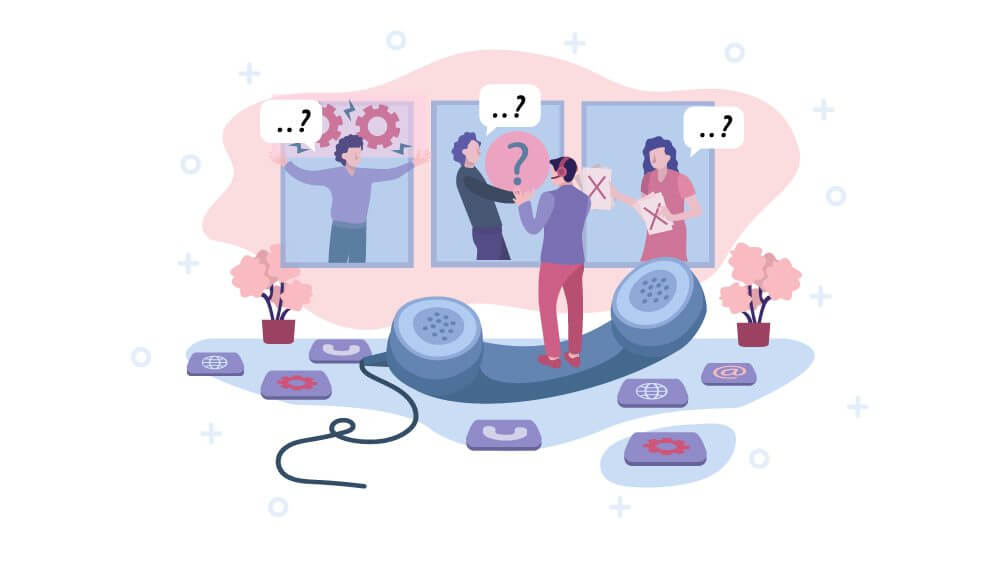What to Report to Your Company Compliance and Ethics Hotline?


In organizations aiming to build strong ethical standards, an ethics hotline matters above everything else. Hotlines also represent a company’s commitment to its employees. They are a critical part of the framework that encourages a Speak Up culture.
When wrongdoings occur within the company, the news typically takes a long time to reach the business leaders or simply goes unreported. For instance, consider cases of fraud lingering within the company accounting and paperwork. Inventory theft, confiscating receivables, padding timesheets, or unethical payroll and billing schemes can stay hidden for a long time until they’re finally revealed. In most cases, management learns of misconduct only when an employee chooses to report them anonymously.
So, how exactly do ethics hotlines work? What can you report through them? Do hotlines allow anonymity? Read on to understand.
What Is an Ethics Hotline?
Simply put, a business ethics hotline is a mechanism that helps employees or concerned individuals report unethical, illegal, or improper misconducts that occur in a workplace. Normal channels of communication or internal reporting, in these cases, often fail to offer an effective solution. For instance, an employee might refrain from reporting mistreatment from a supervisor due to a fear of retaliation.
Concerns like harassment, fraud, bullying, favoritism and discrimination are a few of the many frequently occurring misconducts that need immediate attention. These hotlines are designed to collect information from employees who can sense misconduct that needs investigation. Organizations employing a large force often see these issues washing up on their shore in droves. By opening up an anonymous channel for employees to report these cases, an ethics hotline indirectly keeps the company’s ethical culture in check.
When to Use an Ethics Hotline?
Unfortunately, large organizations often deal with frequent cases of misconduct that are difficult to detect. In the absence of a solid ethics and compliance program and an ethics hotline, unethical misconduct can plague a corporate culture. Not surprisingly, anonymous tips from employees are the single largest source of revealing misconduct that lingering within the workforce. An ethics hotline can be used to report:
- Any form of discrimination based on gender, religion, age, race, disability, and more.
- Cases of harassment that can unfold in the form of sexual abuse, verbal abuse, bullying, teasing, or even teasing.
- Unethical accounting practices directed towards profit-making.
- Health and safety issues that emerge when the management fails to take the workers’ safety into account.
- Abuse of authority; for instance punishing employees for not meeting unrealistic goals, demanding inappropriate favors, taking credit for a subordinate’s work, and other cases of retaliation.
- Issues of red-tapism such as hiring a family member over someone more qualified or favoring one employee more over the others.
- Not respecting an employee’s privacy; for instance, when a manager reads emails or tracks keystrokes, punishes employees for their posts on social media, etc.
- Cases of corporate espionage where you see an employee stealing intellectual property or supplying competitors with insider information for monetary purposes.
When Not to Use an Ethics Hotline?
As valuable as ethics hotlines are for employees, it’s important to use them only for issues centered around company ethics. A compliance hotline cannot be used to report:
- Unfounded rumors
- False accusations
- Concerns related (but not limited) to petty disagreement with colleagues
- Complaints like equipment malfunctions or holiday issues
- Anything and everything unrelated to the company’s code of ethics
Anonymity Matters When Reporting Something
According to Gartner, about 60% of all workplace misconduct cases go unreported. These include cases ranging from sexual harassment in the workplace to instances of retaliation. But what could be the reason behind it?
The most common answer? The fear of retaliation. The EEOC (U.S. Equal Opportunity for Employment Commission) reported “retaliation” as the most common charge of misconduct with about 39,110 cases reported in 2019 alone.
Fortunately, workplace misconduct can be minimized when a company incorporates an anonymous, third-party ethics hotline. When your employees know that the line is secure and 100% anonymous, the company will begin to receive more reports that might’ve otherwise gone unnoticed.
For employees, the ethics hotline is like an extended safety arm. Each time you bump across something that doesn’t seem “quite right”, it’s your cue to take action. Your contribution matters (more than you think!) in building your company’s ethical culture. With complete anonymity and with assurances of protection from retaliation, anonymous corporate compliance hotlines provide a safe space for you to report wrongs that need to be corrected. So, the next time you see or face misconduct, pick up the phone and report it right away.
Final Words
Questionable activities that challenge the company’s ethics can rise up from time to time. When left unaddressed they can pile up and seep into the core culture of a company. Large or growing organizations must prioritize an ethical work culture to both attract and retain valuable talent. Compliance hotlines work hard to minimize workplace misconduct alongside maintaining the company’s ethical persona.
Ethico is dedicated to helping organizations maintain the highest ethical standards. Reach out to us to know more about our ethics hotline services.





































